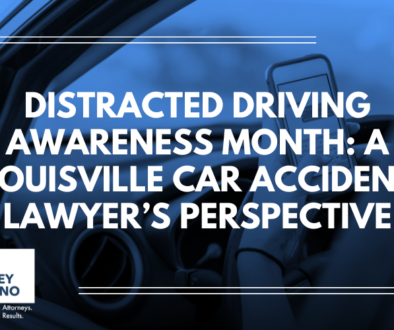How Telematic Systems Assist in Trucking Litigation
Telematic systems emerge as crucial tools for recovery and understanding when commercial accidents occur. In the vast expanse of highways, where commerce moves ceaselessly day and night, semi-trucks are the lifeblood of economies worldwide. They transport goods from one corner of the globe to another, connecting industries and consumers. In this article, we will understand telematic systems on commercial trucks and explore their importance after serious accidents.
Understanding Telematic Systems
Telematics, a fusion of telecommunications and informatics, involves data transmission over long distances. In the context of over-the-road trucks, telematic systems integrate various technologies to monitor and manage vehicles remotely. These systems typically include GPS tracking, vehicle diagnostics, and communication devices. Fleet telematics devices gather real-time data on the semi-truck’s location, speed, engine performance, and other critical parameters.
One of the primary components of telematic systems is the Electronic Control Module (ECM), commonly known as the truck’s “black box.” The ECM records a treasure trove of data, such as engine speed, brake usage, throttle position, and even driver behavior. This information becomes invaluable for fleet managers, insurers, and accident investigators in understanding the circumstances leading to a collision.
Importance of Telematic Systems in Truck Accidents
1. Accident Reconstruction:
Telematic data serves as a virtual eyewitness to the events preceding a big truck accident. Accident investigators can reconstruct the sequence of events by analyzing parameters like speed, braking patterns, and steering inputs. This detailed reconstruction helps determine fault and liability, providing clarity in complex legal proceedings. This evidence can carry a lot of weight with a jury when proving the cause of the wreck.
2. Driver Behavior Analysis:
Beyond mechanical data, telematic systems capture insights into truck driver behavior. They monitor actions like harsh braking, sudden acceleration, and excessive speeding. Analyzing these patterns allows fleet managers to identify risky behaviors and implement corrective measures through training and coaching programs. Additionally, this information is invaluable when showing driver error and cross-examining the truck driver who presents misleading testimony or outright lies.
3. Insurance Claims Processing:
Telematic data is pivotal in expediting insurance claims processing. Insurers can access accurate information about the circumstances leading to the commercial truck accident, reducing the time and resources required to assess claims. This transparency also minimizes the denial of legitimate claims, benefiting both insurers and injury victims.
4. Enhanced Safety Measures:
Telematic systems facilitate proactive safety measures by alerting drivers and fleet managers to potential risks in real-time. For instance, they can monitor driver fatigue by analyzing steering patterns and suggest rest breaks accordingly. Moreover, telematics technologies enable predictive maintenance, identifying vehicle issues before they escalate into safety hazards. Moreover, this data can be used to show the truck driver or the trucking company was aware of maintenance issues and actively ignored the warnings.
5. Legal Compliance:
In many jurisdictions, regulatory bodies mandate the use of telematic systems for commercial vehicles. These regulations aim to enhance road safety, monitor driver hours of service, and ensure compliance with environmental standards. Telematic data provides irrefutable evidence of regulatory compliance.
Recovering Telematic Data After an Accident
In the aftermath of a serious truck accident, retrieving telematic data becomes paramount for understanding the root causes and mitigating future risks. However, accessing this data might pose challenges, especially if the vehicle sustains significant damage. Here are some steps to ensure the successful recovery of telematic data:
1. Preserve the Evidence:
Immediately after the accident, it’s crucial to preserve the vehicle and its components, including the ECM. Any attempt to repair or tamper with the truck could compromise the integrity of the data. Accident investigators should secure the scene and initiate the data retrieval process promptly.
Time is of the essence in these cases. Trucking companies know that they face an enormous financial risk after seriously injuring someone or killing someone in a negligent truck accident. Some less-than-reputable trucking companies have been known to tamper with the ECM so that the data is corrupted to get rid of evidence. At Stein Whatley Astorino, PLLC, your truck accident lawyers move swiftly to preserve evidence. This is done by sending a preservation letter (also known as a spoliation letter) by certified mail to the truck driver, the trucking company, and the insurance company. We then retain an independent expert to secure the data for safekeeping.
2. Engage Experts:
Telematic data retrieval often requires specialized knowledge and equipment. Engaging forensic experts or telematics service providers with experience in accident reconstruction is advisable. These professionals can extract and interpret the data accurately, providing valuable insights for the investigation. Stein Whatley Astorino hires the best accident reconstruction experts who investigate truck crashes all around the United States. We only hire reconstruction experts with the highest competency and reputation so that our injured clients can recover the full and fair compensation they deserve.
3. Legal Considerations:
Adherence to legal protocols is essential when accessing telematic data, especially concerning privacy and data protection laws. Ensure compliance with relevant regulations and obtain necessary permissions before accessing or sharing the data with third parties. For this reason, you want to ensure your truck accident lawyer is an experienced litigation lawyer and trial attorney. The data necessary to reveal liability on the part of the fleet vehicle driver, the trucking company, or other third party may not be readily available without filing a suit and using the power of the court to compel the bad actors to provide the information.
4. Collaborate with Authorities:
Cooperation with law enforcement agencies and regulatory bodies is vital during the data retrieval process. They can provide guidance on legal procedures and facilitate access to additional resources if required. Collaborative efforts expedite the investigation and ensure adherence to legal requirements. You will want an experienced truck accident lawyer early in the process to collaborate with law enforcement, the fleet company, and the insurance company. A lot of the heavy lifting is done on the front end of these cases that proves the case on the back end. It is vitally important to get counsel quickly after a serious truck wreck.
5. Data Analysis and Interpretation:
Once the telematic data is retrieved, thorough analysis and interpretation are necessary for meaningful conclusions. Accident reconstruction experts, along with legal counsel, can analyze the data to establish causation, liability, and contributing factors. Furthermore, this analysis forms the basis for legal proceedings. It also positions our clients to receive the full and fair compensation they deserve.
Telematic Systems – A Lifeline in Trucking Litigation
Telematic systems represent a technological lifeline in the world of trucking litigation, offering insights and accountability in the wake of serious truck accidents. From semi-truck accident reconstruction to truck driver behavior analysis, these systems play a multifaceted role in proving an injury victim’s case. As the backbone of modern transportation, telematics solutions continue to evolve, empowering truck accident attorneys with actionable data to seek justice for their injured clients. In the realm of 18-wheeler truck accidents, the importance of telematic systems cannot be overstated.
If you were injured in a semi-truck truck accident and want to discuss your options with one of our experienced truck accident attorneys, call us at 502.553.4750. The initial consultation is always free.




